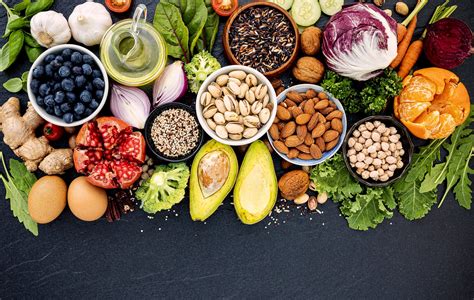Conquering the Midday Energy Dip
Ah, the afternoon slump. For many, it’s a familiar nemesis – that sudden drop in energy, focus, and motivation that strikes mid-afternoon, making even simple tasks feel like climbing a mountain. It’s often accompanied by a craving for sugary snacks or caffeine, but these quick fixes usually lead to an even harder crash. The good news? Nutrition is your most powerful tool in combating this energy drain and maintaining peak performance all day long.

Understanding the Roots of the Slump
Before we dive into the fuel, let’s briefly understand why the slump happens. Often, it’s a combination of factors, including:
- Blood Sugar Rollercoaster: A lunch high in refined carbohydrates and sugars can cause a rapid spike in blood sugar, followed by an equally rapid crash as your body over-corrects.
- Dehydration: Even mild dehydration can significantly impact energy levels, mood, and cognitive function.
- Poor Food Combinations: Meals lacking fiber, healthy fats, or protein are digested quickly, leaving you feeling hungry and sluggish sooner.
- Digestive Effort: Heavy, greasy meals can divert significant energy to digestion, leaving less for your brain and body.
The Optimal Nutritional ‘Fuel’ for Sustained Energy
To keep your energy levels steady and avoid the afternoon crash, focus on nutrient-dense foods that provide a slow, consistent release of energy. Think of it as premium, long-lasting fuel for your body.
1. Complex Carbohydrates: The Slow Burn
Forget the white bread and sugary cereals. Your body needs carbohydrates for energy, but the key is choosing complex carbs. These are rich in fiber, which slows down glucose absorption, preventing blood sugar spikes and providing a steady stream of energy.
- Best sources: Whole grains (oats, brown rice, quinoa, whole-wheat bread), legumes (beans, lentils), starchy vegetables (sweet potatoes, butternut squash), and most fruits.

2. Lean Protein: Stabilize and Satisfy
Protein is essential for satiety and helps to slow the absorption of carbohydrates, further stabilizing blood sugar. It also provides amino acids necessary for neurotransmitter production, which impacts mood and alertness.
- Best sources: Lean meats (chicken, turkey), fish (salmon, tuna), eggs, Greek yogurt, cottage cheese, tofu, tempeh, nuts, and seeds.
3. Healthy Fats: Long-Lasting Fuel
Healthy fats are crucial for brain function and provide a concentrated source of energy that burns slowly. They also contribute to feelings of fullness.
- Best sources: Avocados, nuts (almonds, walnuts), seeds (chia, flax, hemp), olive oil, and fatty fish.

4. Hydration: The Overlooked Energy Booster
Dehydration is a common culprit for fatigue. Make sure you’re drinking enough water throughout the day. Herbal teas are also a great option.
- Tip: Keep a water bottle handy and sip regularly. Infuse water with fruit slices for added flavor.
5. Strategic Snacking: Don’t Wait Until You’re Starving
If you have a long gap between meals, a small, balanced snack can prevent energy dips. Aim for a combination of protein, fiber, and healthy fats.
- Good snack ideas: A handful of almonds with an apple, Greek yogurt with berries, vegetable sticks with hummus, hard-boiled egg.

Crafting Your Anti-Slump Meal Plan
Here’s how to incorporate these principles into your daily routine:
- Breakfast: Start strong with a combination of complex carbs and protein. Oatmeal with berries and nuts, or scrambled eggs with whole-wheat toast and avocado.
- Lunch: Build a balanced meal. A salad with lean protein (chicken, chickpeas) and a variety of colorful vegetables, dressed with olive oil and vinegar, and a side of quinoa. Or a whole-grain wrap filled with turkey, hummus, and veggies.
- Afternoon Snack (if needed): Opt for an apple with peanut butter, a small handful of trail mix, or a small container of plain Greek yogurt.

Beyond Food: Lifestyle Factors
While nutrition is paramount, remember that sleep, stress management, and regular physical activity also play crucial roles in your overall energy levels. A holistic approach will yield the best results.
Conclusion
Beating the afternoon slump isn’t about quick fixes; it’s about providing your body with consistent, high-quality fuel. By prioritizing complex carbohydrates, lean proteins, healthy fats, and staying well-hydrated, you can stabilize your blood sugar, maintain mental clarity, and enjoy sustained energy throughout your day. Make these dietary shifts, and you’ll transform your afternoons from a struggle into a period of continued productivity and vitality.




